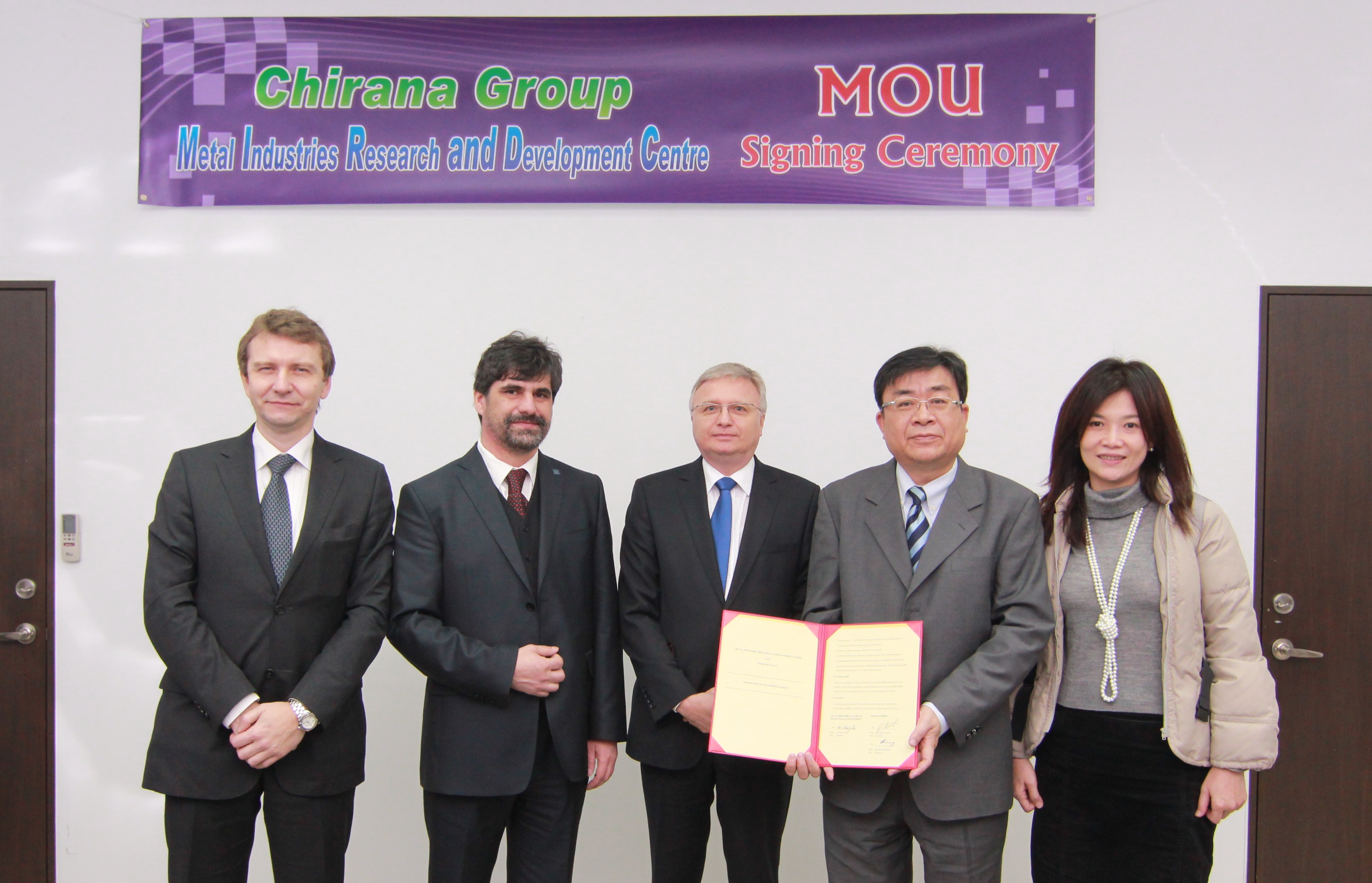Taiwan's MIRDC and Slovakia's Chirana Group Signs MOU on Medical Instrument Development
2014/03/05 | By Steve Chuang
To accelerate Taiwan's development of medical instruments, the Metal Industries Research & Development Centre (MIRDC), a government-funded R&D institute, has signed a memorandum of understanding (MOU) with Chirana Group, a Slovakian supplier of medical instruments.
The MOU was already signed in late January between C.H Fu, MIRDC's CEO, and Chirana's CEO, Henrich Hercegu, witnessed by the Slovakian Embassy, Michal Kovac, Chirana's chairman, Jiri Kopecek, and Hubert Lo, chairman of Zodic Light World Technology Inc., Chirana's Taiwanese partner of minimally invasive surgery medical equipment and advanced applied materials in the Kaohsiung Software Technology Park in southern Taiwan. In addition to establishing partnership with MIRDC, Chirana has also expressed interest in setting up an R&D center in the park.
MIRDC reported that Chirana is a globally known company of medical instruments, whose products are widely accepted by hospitals and clinics in over 50 countries. Moreover, the group boasts decades-long experience in developing radiological technology and making radiotherapy equipment, deemed a top-end supplier with cutting-edge technology and strong R&D capability.
Worth mentioning is that Chirana's Taiwanese partner, Zodic Light World, is also noted for excellent capability in developing minimally invasive surgical instruments and advanced materials.
MIRDC's CEO Fu indicated that Chirana inked the MOU with MIRDC, primarily because the former looks to acquire and apply the latter's newest technology, anti-sticking coating technology for electrosurgical equipment in its minimally invasive surgical instruments.
This technology, mainly based on chromium carbide coating using non-vacuum fusion, can finish surgical instruments with anti-adherence ceramic-like surface, so as to reduce tissue adherence and damages while helping accelerate recovery of surgical wounds. It already passed ISO 10993 standards for bio-compatibility testing for medical devices, and has been engaged in animal testing, according to MIRDC.
Meanwhile, Fu said, the signing of the MOU is significant to development of not just Taiwan's medical instrument sector, but also the Biotech & Medical Device Industrial Cluster at Kaohsiung Science Park, for the document shows Chirana's intention to set up its R&D center in the park, which, in turn, will help cultivate related talent and upgrade the sector in the southern region in the future. (SC)




